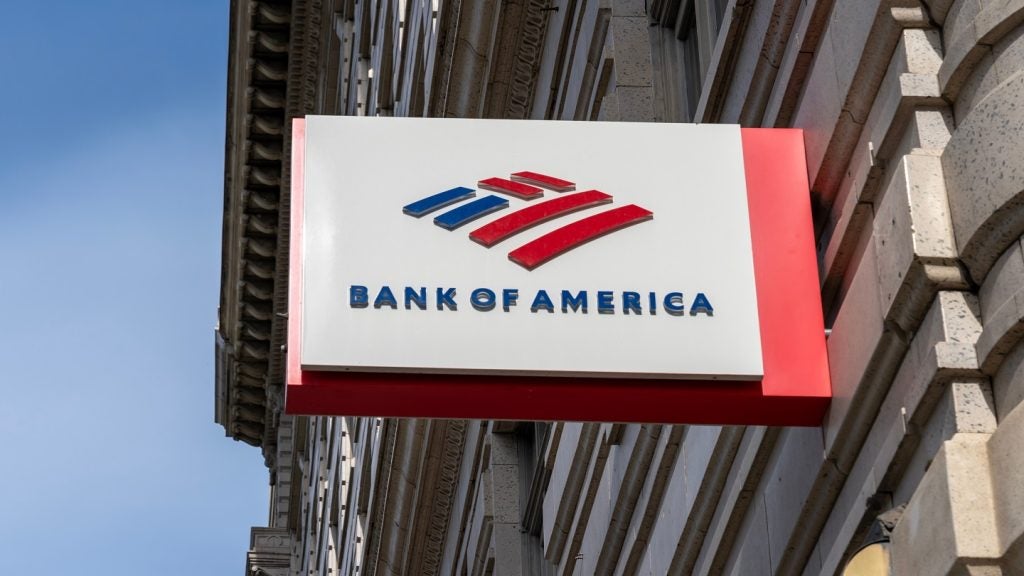
Paul Golden speaks to the French leasing association and industry figures about how the first half of 2020 stacked up for equipment, IT and motor leasing.
The French leasing industry is keen to see a return to growth following a dismal drop in sales figures this year thanks to the coronavirus hitting business hard. The government put in place a variety of measures to help businesses through the pandemic and the industry responded quickly with a raft of rescheduled lease payment plans for their clients. Now the autumn period brings fears of a second wave of rescheduling requests and a sense of déjà vu as coronavirus numbers begin to rise again.
As with many other markets, the lease industry in France had entered 2020 in optimistic mood. Equipment leasing was up by 7.3% in 2019 with almost €32bn in new lease contracts signed last year and several sectors experiencing encouraging results including IT and office automation, which was up by 9.5%; other equipment (including machine tools and agricultural equipment) where contract value rose by 8.9%; utility and industrial vehicles (up 6.7%) and passenger cars, where the value of lease contracts increased by 5.2%.
Leasing transactions with a purchase option represented 26.3% of companies’ total investments in manufactured goods in 2019, well above the 20-year average of 22.9%. New investments made through leasing transactions without a purchase option reached nearly €13.5bn, up 4.4% from 2018.
There was even more positivity around the real estate leasing market, which returned to growth with €4.8bn in new contracts signed compared to 2018. This was the highest increase since 2010 and the highest level of activity recorded since 2012.
Motor finance
Car leasing transactions with purchase options were used to finance three-quarters of new cars sold last year (excluding personal loans). Another long-term trend for individuals is the development of leasing transactions with purchase options to finance second-hand cars which though still a small market in 2019 (13.5% of second-hand cars were financed this way) increased by 46.6% compared to 2018.
How well do you really know your competitors?
Access the most comprehensive Company Profiles on the market, powered by GlobalData. Save hours of research. Gain competitive edge.

Thank you!
Your download email will arrive shortly
Not ready to buy yet? Download a free sample
We are confident about the unique quality of our Company Profiles. However, we want you to make the most beneficial decision for your business, so we offer a free sample that you can download by submitting the below form
By GlobalDataFast forward six months and the picture is very different. ASF (Association Française des Sociétés Financières) data shows that institutions specialising in equipment leasing recorded a decrease in production of 17.8% during the first half of 2020 compared to the same period the previous year. Real estate leasing transactions fell even more sharply, down 20.6% from the first six months of last year. According to ASF director general Françoise Palle-Guillabert, lease companies in France took a proactive approach to the problems caused by coronavirus.
“First, there was a strong mobilisation to answer or anticipate requests to reschedule leasing payments,” he says. “By mid-March, adequate mechanisms were set up to support clients and partners involved in equipment, financial and real estate leasing. They rapidly offered to reschedule for up to six months payments of clients whose businesses were impacted by the crisis.”
The leasing sector has participated in the design of two financial sector protocols on credit payment rescheduling to comply with European Banking Authority guidelines. The protocol on companies and professionals extends payment rescheduling for up to six months, while the protocol on tourism extends rescheduling for up to 12 months.
“Approximately half a million contracts were immediately rescheduled,” observes Palle-Guillabert. “This figure is probably much higher now, but it is still too early to quantify the extra number of contracts that were re-scheduled.” The leasing profession has also made a number of proposals to government authorities to support cash flow and real estate leasing investment and investment in rental financing.
For the former the industry called for incentives for sale lease backs and ‘green’ real estate leasing so that real estate leasing might be granted a specific tax regime. In the event of a real estate sale lease back transaction with or without property renovation and investment in specific equipment, the lessee would be allowed to spread the capital gain tax.
“This provision helped many companies during the 2009-2012 crisis and the ASF is working to implement these measures,” says Palle-Guillabert. “The proposition received a warm welcome from the French government and will be implemented in 2021 for two years.”
The proposal for supporting rental financing was an extension of the over-amortisation scheme. “It should be noted that leasing is directly linked to companies’ investments and as such benefits from all the measures aimed at promoting investment, such as the 40% additional depreciation scheme, which was widely used since 2015 and regularly renewed by public authorities,” he adds.
However, the ASF’s director general warns that professionals fear the recovery is not fast and strong enough and worry about a second wave of rescheduling requests.
SME Support
BNP Paribas Leasing Solutions has implemented several specific measures since the start of the pandemic explains France country manager, Alain Escoffier. “For instance, in order to provide concrete support and preserve the cash flow of our clients we approved more than 70,000 payment deferral requests,” he says. “To reduce processing time of these requests, we also set up 15 ‘robots’ that helped manage requests in an automated manner.”
He adds that between April and August, Covid-19 practically put a stop to all non-urgent IT projects as most companies directed their efforts and their budgets towards other IT projects, relating mainly to security and digital tools to enable their employees to work remotely.
“In almost all sectors, companies are cutting their budgets in order to have cash flow to prepare for the post-coronavirus period,” says Escoffier. “However, the health crisis has undoubtedly accelerated their digital transformation and appetite, along with their inclination towards new forms of financing – including leasing – to better control budgets. We are witnessing a major change in the traditional financial culture.”
But he also accepts that France is still facing an economic crisis and that despite government measures to help businesses deal with the economic consequences of the crisis, a complete recovery in 2021 seems uncertain. The risk will be even higher if companies are unable to pay back the state-guaranteed loans and moratoria signed in 2020.
“The health crisis has and will have important consequences in terms of the cost of risk for 2021 and also for 2020,” adds Escoffier. “Businesses will have to show resilience and adaptability during this unprecedented period to survive although the government’s €100bn stimulus package should serve both as a cushion against the effects of the crisis and a boost to the ongoing recovery.”
Societe Generale Equipment Finance (SGEF) launched the ‘Stronger Together’ programme at the beginning of the crisis to support international and local vendors, dealers, partners and end customers with flexible financing and encourage additional equipment sales.
“More than €1bn of new investment was made available throughout our network,” explains Odile de Saivre, deputy head of SGEF & member of Franfinance board. “We were mobilised to adapt our organisations to full remote work for all employees. Those who were at the edge in term of digitisation could easily manage their business and even increase their business volume during the crisis.”
The most significant developments de Saivre has observed in the French market over the last 18 months are the development of the IT sector and initiatives to encourage equipment usage rather than ownership. “These models of consumption are not new but are accelerating notably with the emergence of new technologies,” she says.
Another notable area of development is green financing. “The leasing industry has a responsibility to support the environmental transition,” says de Saivre. “Beyond the importance we all see in the development of CSR [corporate social responsibility] activities, our commitment in this field is largely driven by clients and partners. More and more of our interactions with them concern energy efficiency, investments in sustainable equipment, and asset life cycle improvement.”
She observes that the crisis has caused an increase in the cost of risk and beyond immediate defaults the recession should also permanently weaken the economy and impact investment decisions and timing.
“Under these conditions, the leasing and asset financing markets should experience a decline and then low growth,” she says. “However, in order to optimise their cash flow companies may favour leasing solutions and turn to agile players to benefit from flexibility and cost per use vs asset ownership. This trend may bring new clients to the asset finance industry and support our activity.”
Since the end of the lockdown, the market has been quite dynamic because customers have realised that they need to manage their working capital in a different way in order to keep their cash on hand in case of need.
That is the view of Richard Parcollet, country manager France DLL, who observes that not all leasing companies could execute the six-month grace period in the same way given IT systems that were not designed to receive a flood of rescheduling requests.
“The idea was to support our customers and avoid as much as possible a huge number of arrears and default cases to try to keep control on our non-performing loan ratio,” he explains. “Our corporate centres and executive board were supportive of such actions, especially for the south-west of Europe (including Italy, Spain and Portugal as well as France).”
Parcollet notes that the firm’s back-office teams have been working hard during the summer to finalise rescheduling requests and connect with customers in arrears.
“Fears of a second wave of the epidemic are rising in France, with the number of new cases surging even though the death rate remains low compared to spring highs,” he adds. “The government may also have to become more forceful in some areas about imposing confinement measures for infected people and those they have been in touch with. France is now at a worrying level which is not far behind Spain, with a lag of maybe two weeks, and much more severe than that of Italy.”
DLL’s initial forecasts were to achieve up to 80% of its budget in France for 2020. “We have a good pipeline but we do not have a crystal ball,” says Parcollet.
A positive assessment comes from Frederic Andersson, head of lease for ING France, who refers to an increase in investments in Q3 and expects further gains in the final three months of the year.
“We have seen an increase in high tech projects and the pandemic has accelerated digitisation of markets and investment,” he says. “Working from home has required additional IT investment from companies and while the outlook for the coming months remains uncertain and depends on the coronavirus situation this environment will not last forever and we can expect a sharp increase in investment as from the second quarter of next year.”
Thibault Paland, managing director DIAC, says that in a challenging automotive sector his company has outperformed the overall market. “We have been at the forefront of the automotive market’s recovery since the end of the lockdown and this has translated to strong results for personal and commercial new, used and electric vehicle segments,” he says.
Renault and DIAC reacted to coronavirus by implementing a support plan for the network that applied to all sales, post-sales and financing activities. This included a 90-day inventory carrying extension for Renault and Nissan dealerships and cash flow advances.
For personal customers it extended all lease financing contracts with return dates between March 15 and June 30 and commercial customers received a 90-day extension at the start of the lockdown period for contracts with due dates in April, May and June covering more than half a million contracts.
“Customers are always seeking greater flexibility and we have seen a growing interest in electric vehicles in line with the enhancement of our financing and service offers,” says Paland.
“Since the start of 2020 the VR Liberté (‘freedom replacement vehicle’) service supporting lease financing contracts for all Renault and Nissan electric vehicles has boosted vehicle sales by providing customers with occasional access to a combustion engine vehicle for longer drives.”
He observes that new vehicle sales have remained stable, driven by rental offers which account for 80% of subscriptions. For used vehicles, credit transfers to lease financing offers are on the rise and now account for more than 20% of transactions. There are structural reasons behind this trend, including the return of the first new vehicles under lease financing contracts.
“We have several opportunities to seize on in personal and corporate markets in late 2020 and 2021, such as supporting Renault in the launch of its first hybrid with dedicated financing offers,” concludes Paland.
Key data at a glance
IMF REVISED REAL GDP GROWTH PROJECTIONS (DUE TO COVID-19)
2020 -7.2%, 2021 4.5%
Source: IMF World Economic Outlook: The Great Lockdown, published April 2020
GDP per capita (pre COVID-19)
$49,144
Source: OECD, 2019 ($USD)
Ranked 6th in the world
According to the White Clarke Global Leasing Report 2020, which ranks countries by leasing volume, France was ranked 6th (compared to neighbours Germany 4th, the UK 3rd, Italy 7th and Spain 16th). Citing figures for 2018, White Clarke Group reported that total new leasing business in France was $52.18bn (with growth up 9.79% on the previous year). White Clarke sourced its figures from Leaseurope.
Source: White Clarke Global Leasing Report 2020






